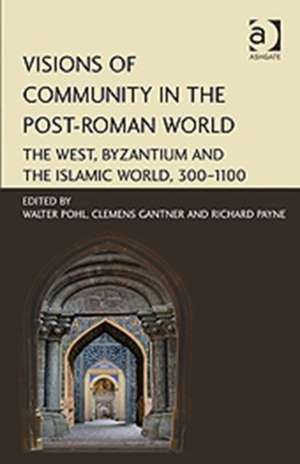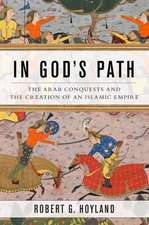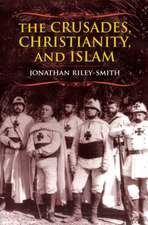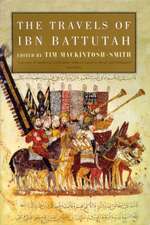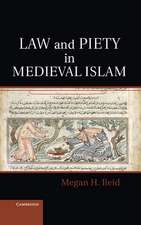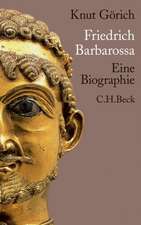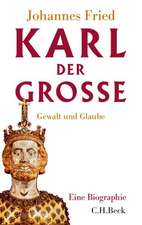Visions of Community in the Post-Roman World: The West, Byzantium and the Islamic World, 300–1100
Editat de Walter Pohl, Clemens Gantner, Richard Payneen Limba Engleză Hardback – 21 iun 2012
| Toate formatele și edițiile | Preț | Express |
|---|---|---|
| Paperback (1) | 489.26 lei 6-8 săpt. | |
| Taylor & Francis – 28 noi 2016 | 489.26 lei 6-8 săpt. | |
| Hardback (1) | 1071.27 lei 6-8 săpt. | |
| Taylor & Francis – 21 iun 2012 | 1071.27 lei 6-8 săpt. |
Preț: 1071.27 lei
Preț vechi: 1306.43 lei
-18% Nou
Puncte Express: 1607
Preț estimativ în valută:
204.98€ • 214.63$ • 170.02£
204.98€ • 214.63$ • 170.02£
Carte tipărită la comandă
Livrare economică 10-24 aprilie
Preluare comenzi: 021 569.72.76
Specificații
ISBN-13: 9781409427094
ISBN-10: 1409427099
Pagini: 592
Dimensiuni: 156 x 234 x 32 mm
Greutate: 1 kg
Ediția:1
Editura: Taylor & Francis
Colecția Routledge
Locul publicării:Oxford, United Kingdom
ISBN-10: 1409427099
Pagini: 592
Dimensiuni: 156 x 234 x 32 mm
Greutate: 1 kg
Ediția:1
Editura: Taylor & Francis
Colecția Routledge
Locul publicării:Oxford, United Kingdom
Cuprins
Contents: Introduction: ethnicity, religion and empire, Walter Pohl; Part 1 What Difference Does Ethnicity Make?: Tribe and State: Social Anthropological Approaches: Envisioning medieval communities in Asia: remarks on ethnicity, tribalism and faith, Andre Gingrich; Tribal mobility and religious fixation: remarks on territorial transformation and identity in imperial and early post-imperial Tibet, Guntram Hazod. Identity and Difference in the Roman World: Zur Neustiftung von Identität unter imperialer Herrschaft: Die Provinzen des Römischen Reiches als ethnische Entitäten, Fritz Mitthof; The Nabataeans - problems of identifying ethnicity in the ancient world, Jan Retsö; Political identity versus religious distinction? The case of Egypt in the later Roman empire, Bernhard Palme. Ethnic Identities in the Early Medieval West: How many peoples are (in) a people?, Herwig Wolfram; The providential past: visions of Frankish identity in the early medieval history of Gregory of Tours' Historiae (6th-9th cent.), Helmut Reimitz; Inventing Wales, Catherine McKenna. Early Islamic Identities: Religious communities in the early Islamic world, Michael G. Morony; 7th-century identities: the case of North Africa, Walter E. Kaegi. Christian Identities in the Middle East: Ethnicity, ethnogenesis, and the identity of Syriac Orthodox Christians, Bas ter Haar Romeny; Avoiding ethnicity: uses of the ancient past in late Sasanian northern Mesopotamia, Richard Payne; Truth and lies, ceremonial and art: issues of nationality in medieval Armenia, Lynn Jones; Roman identity in a border region: Evagrius and the defence of the Roman empire, Hartmut Leppin; Holy land and sacred territory: a view from early Ethiopia, George Hatke. Part 2 Political Identities and the Integration of Communities: Regional and Imperial Identities in the East: Anastasios und die 'Geschichte' der Isaurier, Mischa Meier; Zur Stellung von ethnischen und religiösen Minderheiten in Byzanz: Armenier, Muslime und Paulikianer, Ralph-Johannes Lilie; Regional identities and military power: Byzantium and Islam c.600-750, John Haldon and Hugh Kennedy. The Challenge of Difference: Early Medieval Christian Europe: 'Faithful believers': oaths of allegiance in post-Roman societies as evidence for Eastern and Western 'visions of community', Stefan Esders; 'Einheit' versus 'Fraktionierung': Zur symbolischen und institutionellen Integration des Frankenreichs im 8/9 Jahrhundert, Steffen Patzold; Diaspora Jewish communities in early medieval Europe: structural conditions for survival and expansion, Wolfram Drews; New visions of community in 9th-century Rome: the impact of the Saracen threat on the papal world view, Clemens Gantner. Part 3 Visions of Community, Perceptions of Difference: Islamic Views: Arab-Islamic historiographers on the emergence of Latin-Christian Europe, Daniel G. König; The Vikings in the South through Arab eyes, Ann Christys; Identities of the Saqaliba and the Rusiyya in early Arabic sources, Przemyslaw Urbanczyk. Byzantine Views: Gog, Magog und die Hunnen: Anmerkungen zur eschatologischen 'Ethnographie' der Völkerwanderungszeit, Wolfram Brandes; Strategies of identification and distinction in the Byzantine discourse on the Seljuk Turks, Alexander Beihammer. Western Views: 'A wild man whose hand will be against all': Saracens and Ishmaelites in Latin ethnographical traditions, from Jerome to Bede, John Victor Tolan; Where the wild things are, Ian N. Wood. Conclusions: Conclusions, Leslie Brubaker; Conclusions, Chris Wickham; Index.
Notă biografică
Prof. Walter Pohl, University of Vienna, Austria; Mag. Clemens Gantner, Institut für Mittelalterforschung, Österreichische Akademie der Wissenschaften, Austria; Dr Richard Payne, Mount Holyoke College, Massachusetts, USA.
Recenzii
'As a collection, the volume is a valuable introduction to the spectrum of identities operating at the end of antiquity. As such it moves the discussion of group identity and community solidarity beyond the internal debates that have preoccupied Western medievalists and thus may provide a prolegomena for future comparative studies of community in the post-Roman world.' Speculum, Patrick J. Geary, Institute for Advanced Study 'The value of the book [...] does not so much lie in an abstract (and perhaps uncontroversial) point about identity as a dynamic development with consequences for the exercise of power. The real argument, and the real excitement here, feature in the riot of examples that move across northern and eastern Europe, the Mediterranean, the Caucasus, Ethiopia, the Arabian peninsula, Mesopotamia, the Iranian plateau, and even into the Eurasian steppe - and through this sweep of societies whose boundaries shifted and overlapped continuously, it becomes clear how deeply the question of community mattered to the politics of Late Antiquity and the early Middle Ages... Even a review this long reproduces the problem of identity in miniature: it highlights certain unifying features of the collection while bypassing almost all its subtle details. It is that subtlety which brings us much closer to the worlds of Late Antiquity and the early Middle Ages: for all the identities that were drawn in these centuries, they were so often porous and heterogeneous that one reaches a point where (as Haldon and Kennedy stress) the concept of "society" itself seems to reach its limits. One of the pleasures of this volume is that it maintains a productive tension throughout between these two views, between the bounded and the unlimited - both equally vital to understanding the period.' The Medieval Review '... this is a kaleidoscopic book with an ambitious scope... The present volume is for those who seek varieties of approaches and perspectives through which they are bound t
Descriere
This volume looks at 'visions of community' in a comparative perspective, from Late Antiquity to the dawning of the age of crusades. It addresses the question of why and how distinctive new political cultures developed after the disintegration of the Roman World, and to what degree their differences had already emerged in the first post-Roman centuries. The Latin West, Orthodox Byzantium and its Slavic periphery, and the Islamic world each retained different parts of the Graeco-Roman heritage, while introducing new elements. For instance, ethnicity became a legitimizing element of rulership in the West, remained a structural element of the imperial periphery in Byzantium, and contributed to the inner dynamic of Islamic states without becoming a resource of political integration. Similarly, the political role of religion also differed between the emerging post-Roman worlds. Anybody interested in the development of the post-Roman Mediterranean, but also in the relationship between the Islamic World and the West, will gain new insights from these studies on the political role of ethnicity and religion.
